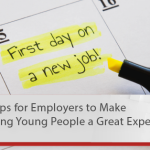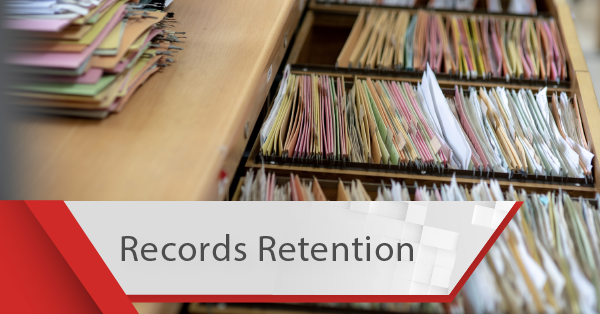
7 Tips for Employers to Make Hiring Young People a Great Experience
April 5, 2023
Effective Job Descriptions
May 24, 2023Employing people to work for your business creates a lot of ‘paperwork’ – whether it’s hard copy or electronic. It’s important for employers to understand what to keep, how to store it, and how to destroy it when it is no longer needed.
What records must be retained from the hiring process?
Any information created or collected to fill a job should be retained for at least one year after the position is filled: job ads, job descriptions, resumes/applications received, interview notes, non-medical screening tests, background checks, etc.
What records must be retained for each employee?
Documents created during the hiring process and afterward should be retained as long as the employee works for your company and for at least one year after termination of employment. However, records must be retained longer if a lawsuit or legal complaint is filed.
These documents, which should be kept in an individual personnel file or folder, include:
- Employment Application
- References
- Offer letter
- Job description
- Agreement to comply with company policies (also called Acknowledgment of Employee Handbook)
- Receipt of company property
- Confidentiality agreement
- Performance evaluations
- Disciplinary action forms
- Training documents
- Emergency contact information
What records must be retained in a confidential file?
Any documents that contain information that could be used for identity theft or that relate to an employee’s medical condition must be kept in a locked file cabinet or password-protected file. These documents include:
- Tax documents
- Direct deposit form/voided check
- Insurance enrollment forms
- Retirement enrollment forms
- Beneficiary forms
- Medical or disability-related documents, including return-to-work or doctor notes
- Workers’ compensation claims
- Drug test consents and reports
- Criminal background checks
- Garnishment orders
What other rules apply to records retention?
- Payroll records, including timekeeping records, must be retained for at least seven years to comply with all federal and state record-keeping laws
- Form I-9, Employment Eligibility Verification must be kept for all employees in one master folder separate from individual employee files. Forms may be destroyed one year after employment ends but at least three years after the employee was hired, whichever is later.
Do employees have a right to access their personnel files?
The company owns the personnel file and is not obligated to provide access unless required by state laws or union rules. However, many companies have a policy that allows current employees (not former employees) to review their personnel files upon request and with management supervision. This does not mean the employee can copy or remove any documents. There is no requirement to provide former employees documents from their personnel file unless there is a lawsuit and the documents are subpoenaed.
An HR professional can help you with all of your human resource needs.
From hiring the right employees, running background checks, creating employee handbooks that include anti-harassment policies and procedures, and so much more, Next Level Solutions can work with you to provide the services that you need to run your business.
For more information about our accounting and human resource services, contact Next Level Solutions at in**@**********ol.net or (225) 330-8347.


